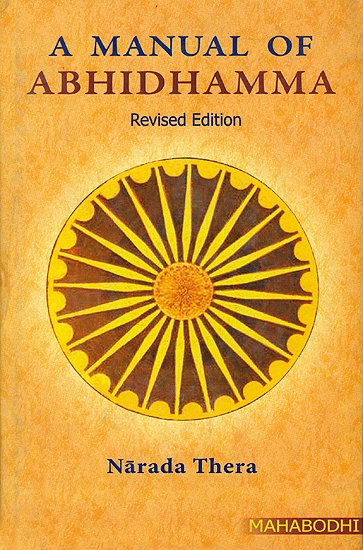Abhidhamma in Daily Life (by Ashin Janakabhivamsa)
by Ashin Janakabhivamsa | 66,666 words
English translation of "Abhidhamma in Daily Life" by Professor Ko Lay. Revised by Sayadaw U Silananda, International Theravada Buddhist Missionary University, Yangon, 1999...
Domain 9 - Dhamma desana (preaching dhamma)
Dhamma desana means preaching the Dhamma. If done with sincerity and magnanimity, preaching the Dhamma excels all other forms of Dana. The Buddha himself said, “Sabbha Danam dhammaDanam jinati - Preaching the Dhamma is the highest charity”. To really achieve true dhamma desana kusala (good deed of preaching the Dhamma), the preacher must not expect gifts, offertories, fame of false pride. If so, the greed (lobha) for such material gain contaminates and diminishes the merits gained from preaching. Then the preacher will be like a foolish man who exchanged a hundred-thousand worth of sandalwood with a pitcher of stale molasses.
Maxim: As the foolish man traded a hundred-thousand worth of sandalwood with some stale molasses; the ignoble preacher teachers the priceless Dhamma in exchange for some petty material gain.
Qualification of a Preacher
A qualified preacher is no ordinary orator. He possess a clear and forceful voice; he must have ability to make others understand him clearly. So a preacher is hard to find. Although there are one thousand cows in a ranch, only one of them will bear forth a flawless bull-calf. Likewise thousands of mothers fail to give birth to a great preacher. A great preacher is indeed a rarity.
The Disadvantage Of Improper Intonation
Qualified teacher should be aware of their virtuous kamma of their past lives; when reciting the Noble Dhamma taught by the Buddha, the preacher must orate with a clear, manly voice. He must not willfully attempt to make his voice pleasant by means of improper accent, stress, intonation or elocution.
The Buddha himself pointed out the disadvantages of improper manipulation of speech sounds, making them sweet, to resemble singing while preaching the Dhamma. They are: (a) one become lustful of one’s own voice; (b) the audience find lustful pleasure in the preacher’s voice; (c) the preacher is blamed for singing like lay persons; (d) the preacher loses concentration while exerting oneself to produce sweet voice (e) the next generation of monks will emulate this indecent style.
Nowadays, these disadvantages can be experienced in many occasions. The younger monks are already following the wrong examples set by the indecent preachers. The pious are seldom present at discourses conducted by such bogus preachers. Those who attend the lectures only perfunctorily do not pay attention to the discourses. The educated class, through desirous of listening to the Dhamma, feel ashamed to be present at the lecture of such vulgar preachers.
It is imperative should have enough decency not to make melodies out of the priceless Dhamma. It is shameful mode of oration.
Simple Ways of Preaching
Dhamma preaching means not only the discourses given to a large audience in a lecture hall. Simple discussion on the Dhamma among two or three persons also is Dhamma desana, provided the preacher does not hope for any gifts or offertories. Giving admonition to devotees, young and old, teaching academic subjects, handicraft or technology of innocent nature, reading out the teachings of Buddha, all qualify as Dhamma desana. Bhikkhus today should train themselves to be good preachers; in addition they should study public speaking, proper reading and writing.
